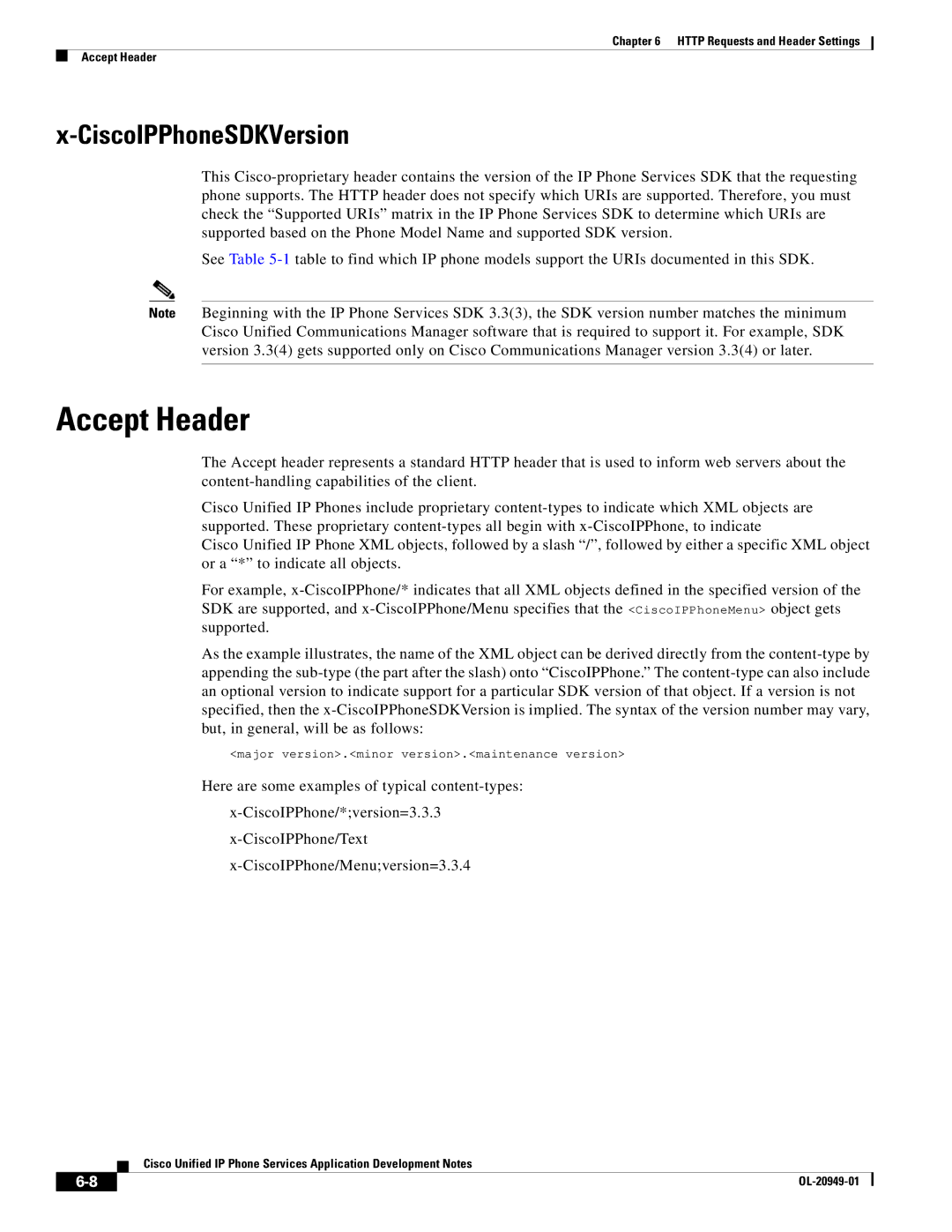Chapter 6 HTTP Requests and Header Settings
Accept Header
x-CiscoIPPhoneSDKVersion
This Cisco-proprietary header contains the version of the IP Phone Services SDK that the requesting phone supports. The HTTP header does not specify which URIs are supported. Therefore, you must check the “Supported URIs” matrix in the IP Phone Services SDK to determine which URIs are supported based on the Phone Model Name and supported SDK version.
See Table 5-1table to find which IP phone models support the URIs documented in this SDK.
Note Beginning with the IP Phone Services SDK 3.3(3), the SDK version number matches the minimum Cisco Unified Communications Manager software that is required to support it. For example, SDK version 3.3(4) gets supported only on Cisco Communications Manager version 3.3(4) or later.
Accept Header
The Accept header represents a standard HTTP header that is used to inform web servers about the content-handling capabilities of the client.
Cisco Unified IP Phones include proprietary content-types to indicate which XML objects are supported. These proprietary content-types all begin with x-CiscoIPPhone, to indicate
Cisco Unified IP Phone XML objects, followed by a slash “/”, followed by either a specific XML object or a “*” to indicate all objects.
For example, x-CiscoIPPhone/* indicates that all XML objects defined in the specified version of the SDK are supported, and x-CiscoIPPhone/Menu specifies that the <CiscoIPPhoneMenu> object gets supported.
As the example illustrates, the name of the XML object can be derived directly from the content-type by appending the sub-type (the part after the slash) onto “CiscoIPPhone.” The content-type can also include an optional version to indicate support for a particular SDK version of that object. If a version is not specified, then the x-CiscoIPPhoneSDKVersion is implied. The syntax of the version number may vary, but, in general, will be as follows:
<major version>.<minor version>.<maintenance version>
Here are some examples of typical content-types:
x-CiscoIPPhone/*;version=3.3.3
x-CiscoIPPhone/Text
x-CiscoIPPhone/Menu;version=3.3.4
Cisco Unified IP Phone Services Application Development Notes

